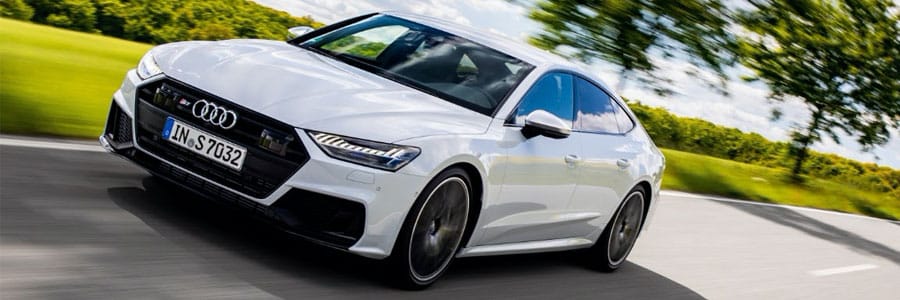Are you using the correct business mileage rates?

In our experience there is often confusion about how much can be claimed for business mileage. But in reality it's actually quite simple.
If you drive a company car and the company pays for all your fuel, there are rates called Advisory Fuel Rates. You use these to avoid paying punitive Fuel Benefit Tax. While it might seem great to have someone pay for your fuel, unless you regularly drive 1000s of miles privately it's really not worth the amount you pay in tax.
For example… the driver of an Audi A4 A4 Saloon 30 TDI Technik 136PS S Tronic who pays tax at 40% will pay £225 a month in Fuel Benefit Tax for having all fuel paid for (2019/20 tax year). So free fuel is very costly.
To claim the Advisory Fuel Rates, you need to keep a record of your private mileage. Private mileage includes your commuting distance. There are plenty of apps and tools to help you do this; or simply record it yourself in a notebook or on your smartphone. But just in case HMRC comes knocking, you must be able to produce evidence of your business/private split.
Each month you need to tally up the amount of private miles you have covered and submit these to your payroll. These will then be deducted from your salary at the appropriate rate. Alternatively you can simply reimburse your company for the private miles covered using the Advisory Fuel Rates.
What if I have to claim my business mileage?
Not all companies operate the same way. Some employers do not have a fuel card policy where all fuel is paid for by the company. Instead they require the driver to submit business mileage each month which will then be recompensed.
It doesn't matter which way around it's done, the outcome is the same: all private mileage must be paid for. HMRC will want to see evidence of mileage claimed.
What are the Advisory Fuel Rates?
The Advisory Fuel Rates are changed every three months to reflect any changes in fuel prices. Don't worry, we'll keep you updated on the changes. But the new rates start from March 01, 2020.
There are different rates for petrol and diesel cars depending on engine size.
Petrol rates have three bands:
- 1400cc or less - 12p;
- 1401cc to 2000cc - 14p;
- Over 2000cc - 20p.
There are also three bands for diesels, but the engine sizes are different. They are:
- 1600cc or less - 9p;
- 1601cc to 2000cc - 11p;
- Over 2000cc - 13p.
So a diesel engined car with an engine size of 1601cc to 2000cc has a pence per mile rate of 11p per mile for example. You can look up the current Advisory Fuel Rates here.
There are two things worth mentioning. Hybrid and plug-in hybrid cars are treated as either petrol or diesel depending on the main power unit.
Fully electric cars have an Advisory Fuel Rate of 4p per mile. But because HMRC does not consider electricity a fuel there are no taxation issues.
Gateway2Lease view on Advisory Fuel Rates
"It's surprising how many companies get in a mess with reimbursing fuel,” explains Rob Marshall, director at Gateway2Lease.
"We see drivers trying to claim the much higher rates for driving a private car on business, but that will lead them into all sorts of trouble. And we don't want to see our clients doing that!
"The important thing to remember is that if you don't keep the records properly, and claim the right amount, Fuel Benefit Tax is then applied for the whole tax year. And with the best will in the world it's hard to see a driver spending £225 a month on their own private fuel as in our example above.
"I've checked out the costs on a smaller vehicle, such as a petrol Fiesta. For a 20% tax payer the Fuel Benefit Tax on this car is £92 a month. Which is still a massive amount of private miles to be covered to make it worthwhile.
"Our advice at Gateway2Lease is to not take ‘free' fuel - because it's just not ‘free' in reality. It's a highly taxed perk that makes little financial sense.
"We'd also encourage as many drivers to think about electrification of their company car where possible. Whether that's a plug-in electric hybrid or a full electric car, the impact your choice of car can help its overall impact on the planet. And it will also save you in company car tax. And you should end up paying less for fuel, too!"
View our latest blog posts

Categories
Pages
We are a family run business based in rural Worcestershire. Our team of 38 staff are on hand to provide an exceptional service to personal and business customers.
Read More
